- Administrator
- Albums and Singles
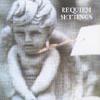 The Silverman is keyboardist Phil Knight, a founding and current memberof The Legendary Pink Dots. This is his third solo album following upon 1995's 'Dream Cell' for Terminal Kaleidoscope and 1998's'Silvermandalas', also for Soleilmoon. Like the latter, this disc issimply comprised of numbered parts, in this case six interconnectedtracks ranging from two to nearly 13 minutes in length. The title isperfect as the album was motivated by the death of his father and theplaces Knight lived and visited while working upon it. Each setting isunique and incorporates found as well as synthesized sounds. Part onefeatures ghostly metallic bell tones amidst a dense, shifting fog. Twomoves into a more electronic territory as a sequence of synth notes,waves and background bass bumps plays out. Three glistens as a dulcimerand subdued electronics dance with an elegant array of winter soundssuch as crumpled snow, cracked ice and water. It's really something howit gracefully slips in and out of consciousness. Four and five arebrief interludes of mechanical whirrings, swooping tones, more bells,rain (or maybe fire) and birdsong. And six is the requiem itself.Steady synth voices become masked by wind and the sounds of trains,evoking cross country movement as well as sorrow. Much like DavidTibet's homage to his departed father, Current 93's 'Sleep Has HisHouse', The Silverman has respectfully paid tribute to his own fatherwith a very lovely album, his best yet.
The Silverman is keyboardist Phil Knight, a founding and current memberof The Legendary Pink Dots. This is his third solo album following upon 1995's 'Dream Cell' for Terminal Kaleidoscope and 1998's'Silvermandalas', also for Soleilmoon. Like the latter, this disc issimply comprised of numbered parts, in this case six interconnectedtracks ranging from two to nearly 13 minutes in length. The title isperfect as the album was motivated by the death of his father and theplaces Knight lived and visited while working upon it. Each setting isunique and incorporates found as well as synthesized sounds. Part onefeatures ghostly metallic bell tones amidst a dense, shifting fog. Twomoves into a more electronic territory as a sequence of synth notes,waves and background bass bumps plays out. Three glistens as a dulcimerand subdued electronics dance with an elegant array of winter soundssuch as crumpled snow, cracked ice and water. It's really something howit gracefully slips in and out of consciousness. Four and five arebrief interludes of mechanical whirrings, swooping tones, more bells,rain (or maybe fire) and birdsong. And six is the requiem itself.Steady synth voices become masked by wind and the sounds of trains,evoking cross country movement as well as sorrow. Much like DavidTibet's homage to his departed father, Current 93's 'Sleep Has HisHouse', The Silverman has respectfully paid tribute to his own fatherwith a very lovely album, his best yet.
samples:
Read More
- Administrator
- Albums and Singles
 Philip Jeck always seems to surprise and surpass expectation every timeI hear him perform. I've heard him spin out haunting loops for avantgarde dancers to strut about to in art spaces. I've heard him spinstickered platters alongside guitarist Vergil Sharkya and fractalvideographer Gerd Willschvetz in an underground car park in Liverpool.I've heard his scaffolded ranks of old car boot turntables mash upcrackly memory traces from worn needles bumping into wires and stickersin a London gallery. I've heard him go walkabout at a festival opening,cutting up dictaphone recordings with the pause button. After hisambitious quartet of lengthily (r)evolving 'Vinyl Codas' released bythe Intermedium label, he returns to Touch with seven shorter liveexcerpts from performances in Liverpool, Manchester, Osaka, Tokyo andVienna. With only a single sample Casio keyboard to aid the junkyardturntables spinning varispeed deteriorating vinyl, he necessarilylimits his options but unlocks endless potentials from abundantalternate histories coded in the grooves. When he loops records at lowspeed, worn old cliches morph into haunting new textures. A phantasmalkeyboard hoot that forms the bedrock of "Pax" sounds like it might'vemorphed slowly from a cheesy old J. Geils Band charity shop hit."Above" cuts scratchy old vinyl into train chug clunks and chickensquawk with some slowed speech narration to explain what exactly isn'tgoing on. "Lambing" is a home recording, soundtracking a film by LucyBaldwyn, and wouldn't sound out of place on his previous Touch CD'Surf,' with groaning ghost vox repeating an eerie refrain over thecrackle'n'drone spin, until slowly a sunrise glow cracks dawn beneaththe locked groove rhythm faultlines. "Vienna Faults" waltz around likea music box in a tumble dryer. There's some crazily mangled sitar"Below," reversing into hollow metal hammering, cut dead by a suddendescending blues guitar riff. "Open" seems to rework familiar noisesfrom 'Surf' into a noisier delayed clatter. "Close" does just that,with some more sitar loops, more meditative but just as playful asbefore. Stray starry plucked fragments drop in at odd angles until aloop locks and deteriorates to a stutter as a single piano note bashesto infinity. A ghost choir of Hamaiian folk singers emerges from thevinyl crackle fog to bid a fond farewell. If you haven't heard PhilipJeck before, this is not his most immediate recording and 'Surf' or the'Vinyl Coda' series might be better ports of entry. He has not yet leftthe building.
Philip Jeck always seems to surprise and surpass expectation every timeI hear him perform. I've heard him spin out haunting loops for avantgarde dancers to strut about to in art spaces. I've heard him spinstickered platters alongside guitarist Vergil Sharkya and fractalvideographer Gerd Willschvetz in an underground car park in Liverpool.I've heard his scaffolded ranks of old car boot turntables mash upcrackly memory traces from worn needles bumping into wires and stickersin a London gallery. I've heard him go walkabout at a festival opening,cutting up dictaphone recordings with the pause button. After hisambitious quartet of lengthily (r)evolving 'Vinyl Codas' released bythe Intermedium label, he returns to Touch with seven shorter liveexcerpts from performances in Liverpool, Manchester, Osaka, Tokyo andVienna. With only a single sample Casio keyboard to aid the junkyardturntables spinning varispeed deteriorating vinyl, he necessarilylimits his options but unlocks endless potentials from abundantalternate histories coded in the grooves. When he loops records at lowspeed, worn old cliches morph into haunting new textures. A phantasmalkeyboard hoot that forms the bedrock of "Pax" sounds like it might'vemorphed slowly from a cheesy old J. Geils Band charity shop hit."Above" cuts scratchy old vinyl into train chug clunks and chickensquawk with some slowed speech narration to explain what exactly isn'tgoing on. "Lambing" is a home recording, soundtracking a film by LucyBaldwyn, and wouldn't sound out of place on his previous Touch CD'Surf,' with groaning ghost vox repeating an eerie refrain over thecrackle'n'drone spin, until slowly a sunrise glow cracks dawn beneaththe locked groove rhythm faultlines. "Vienna Faults" waltz around likea music box in a tumble dryer. There's some crazily mangled sitar"Below," reversing into hollow metal hammering, cut dead by a suddendescending blues guitar riff. "Open" seems to rework familiar noisesfrom 'Surf' into a noisier delayed clatter. "Close" does just that,with some more sitar loops, more meditative but just as playful asbefore. Stray starry plucked fragments drop in at odd angles until aloop locks and deteriorates to a stutter as a single piano note bashesto infinity. A ghost choir of Hamaiian folk singers emerges from thevinyl crackle fog to bid a fond farewell. If you haven't heard PhilipJeck before, this is not his most immediate recording and 'Surf' or the'Vinyl Coda' series might be better ports of entry. He has not yet leftthe building.
samples:
Read More
- Administrator
- Albums and Singles
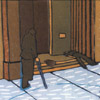 Swedish group Pallin has chosen a very difficult path for themselves inthe modern age of Swedish music. A market and genre that usuallyincludes fairly horrible bands with grating pop sensibilities has nouse for Pallin, who create guitar-and-strings-based simple compositionsthat are perfect background music for your Saturday afternoon fishingtrip. "A One Bedroom Apartment," then, is a decidedly quiet affair, butnot without moments of jarring efficiency. The first release I've heardby the band, this collection is assured, playful, yet not entirelystunning. The only thing I felt throughout my listening to this CD thattroubled me was the overwhelming feeling that I'd heard it all before,just by some other band. Some tracks were reminiscent of EricBachmann's work with Crooked Fingers and Barry Black, others soundedvaguely like structures on a gybe! record. But if you're going toremind people of other bands, you can't go wrong with those two. AndPallin rarely goes wrong. This music is soothing without pretense,gorgeous without effort, and memorable without complete originality. Itis a "yawner" in areas: the first moments of the title track left meclose to the longest sleep since Rip Van Winkle, and most tracks dotake a few moments to build to their true happy hunting ground.However, the musicians are confident in their abilities, and do holdcommand over their instruments. I haven't heard twang like this on mostcountry records of recent memory, and that's precisely where it shouldbe found. I could have done without the few moments of field recording,but, ultimately, it doesn't really matter by the final track, which isjust plain lovely while entirely too short. Easily my pick of the week.
Swedish group Pallin has chosen a very difficult path for themselves inthe modern age of Swedish music. A market and genre that usuallyincludes fairly horrible bands with grating pop sensibilities has nouse for Pallin, who create guitar-and-strings-based simple compositionsthat are perfect background music for your Saturday afternoon fishingtrip. "A One Bedroom Apartment," then, is a decidedly quiet affair, butnot without moments of jarring efficiency. The first release I've heardby the band, this collection is assured, playful, yet not entirelystunning. The only thing I felt throughout my listening to this CD thattroubled me was the overwhelming feeling that I'd heard it all before,just by some other band. Some tracks were reminiscent of EricBachmann's work with Crooked Fingers and Barry Black, others soundedvaguely like structures on a gybe! record. But if you're going toremind people of other bands, you can't go wrong with those two. AndPallin rarely goes wrong. This music is soothing without pretense,gorgeous without effort, and memorable without complete originality. Itis a "yawner" in areas: the first moments of the title track left meclose to the longest sleep since Rip Van Winkle, and most tracks dotake a few moments to build to their true happy hunting ground.However, the musicians are confident in their abilities, and do holdcommand over their instruments. I haven't heard twang like this on mostcountry records of recent memory, and that's precisely where it shouldbe found. I could have done without the few moments of field recording,but, ultimately, it doesn't really matter by the final track, which isjust plain lovely while entirely too short. Easily my pick of the week.
samples:
Read More
- Administrator
- Albums and Singles
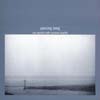 Anytime I read about a band that creates "post-rock soundscapes" thesedays, I tend to cringe. It's a pretty generic term that usually implies"Try this next time you have trouble sleeping." Long, drawn-out,sprawling epics that top the ten minute mark are also not unheard ofwith this description. Nevertheless, sometimes a band slips throughthat fine veil of half mediocrity/half meandering to create somebeautiful music. On previous records, both artists involved on "PassingSong" have created music that suggests they are capable of breakingthrough, but need more time to develop. Working together on thisrelease hasn't helped them one bit: they're still both stuck in thatrealm. This release isworth listening to, but I doubt you'll take anything away from it thatwill change your life. It is what it is: simple song structures with acapable voice attached that ultimately go nowhere new or special. Theydon't touch a nerve. They don't even scratch the surface of the skin.They hang there, in the air, waiting for that defining moment that willseparate the wheat from the chaff. And it never comes. Having saidthat, a few of the tracks do have incredible potential, and I see somegreat things coming from this pairing down the road. The opening track,'Only When You Sleep', smolders in its languid drawl, and the justplain scary 'Snow Sunrise' purports to decimate us all even though itnever manages to. A good set by two powerful creative forces thatdeserve more notice. Maybe with another set like this one, they willget it.
Anytime I read about a band that creates "post-rock soundscapes" thesedays, I tend to cringe. It's a pretty generic term that usually implies"Try this next time you have trouble sleeping." Long, drawn-out,sprawling epics that top the ten minute mark are also not unheard ofwith this description. Nevertheless, sometimes a band slips throughthat fine veil of half mediocrity/half meandering to create somebeautiful music. On previous records, both artists involved on "PassingSong" have created music that suggests they are capable of breakingthrough, but need more time to develop. Working together on thisrelease hasn't helped them one bit: they're still both stuck in thatrealm. This release isworth listening to, but I doubt you'll take anything away from it thatwill change your life. It is what it is: simple song structures with acapable voice attached that ultimately go nowhere new or special. Theydon't touch a nerve. They don't even scratch the surface of the skin.They hang there, in the air, waiting for that defining moment that willseparate the wheat from the chaff. And it never comes. Having saidthat, a few of the tracks do have incredible potential, and I see somegreat things coming from this pairing down the road. The opening track,'Only When You Sleep', smolders in its languid drawl, and the justplain scary 'Snow Sunrise' purports to decimate us all even though itnever manages to. A good set by two powerful creative forces thatdeserve more notice. Maybe with another set like this one, they willget it.
samples:
Read More
- Administrator
- Albums and Singles
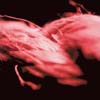 'Imagination of Rhythm' and 'Unknown Source of Egoism' are not exactlyfavorable track titles for a band's debut release. And given what themembers of Rope have been through, it almost seems like high time foranother slap in the face to go with their hardships. "Fever" wasrecorded in 2000 in the band's native Poland, after which they sold alltheir belongings and moved to America. Land of opportunity or not,America may not be quite ready for Rope. Slow to build, almostcacaphonous in places, and even a little bit irritating, their music isthat of an unskilled child: unsure, monotonous, repetitive and amateur.It's not altogether unpleasing, though. As first recordings go, "Fever"is pretty good. You can definitely hear the influences on their music,and you can tell that they're searching for that sound of their own.It's all pretty eerie, as each track jars and thumps, but soars withsharp sounds, escalating towards God knows what. 'Liquid Courage' isactually the most complete track, and the most calm for the first 3minutes or so. Then it descends into the same noise that mars the othertracks. Fortunately, there is room for improvement. Since Chris Drazekand Robert Iwanik are now living in Chicago, they'll have plenty tohear that will affect their pallette. I predict the next Rope recordwill sound nothing like this. And I look forward to hearing it. Thisone was just a bit too much for me.
'Imagination of Rhythm' and 'Unknown Source of Egoism' are not exactlyfavorable track titles for a band's debut release. And given what themembers of Rope have been through, it almost seems like high time foranother slap in the face to go with their hardships. "Fever" wasrecorded in 2000 in the band's native Poland, after which they sold alltheir belongings and moved to America. Land of opportunity or not,America may not be quite ready for Rope. Slow to build, almostcacaphonous in places, and even a little bit irritating, their music isthat of an unskilled child: unsure, monotonous, repetitive and amateur.It's not altogether unpleasing, though. As first recordings go, "Fever"is pretty good. You can definitely hear the influences on their music,and you can tell that they're searching for that sound of their own.It's all pretty eerie, as each track jars and thumps, but soars withsharp sounds, escalating towards God knows what. 'Liquid Courage' isactually the most complete track, and the most calm for the first 3minutes or so. Then it descends into the same noise that mars the othertracks. Fortunately, there is room for improvement. Since Chris Drazekand Robert Iwanik are now living in Chicago, they'll have plenty tohear that will affect their pallette. I predict the next Rope recordwill sound nothing like this. And I look forward to hearing it. Thisone was just a bit too much for me.
samples:
Read More
- Administrator
- Albums and Singles
 Steinbrüchel zooms in from Zurich weaving unique cyclical digitalhisscapes. On this 3" CD he repeatedly unwinds a coiled wire ofimmersive hi-tone ambience in exponentially swelling chunks. Betweeneach are short silent gaps which have been given their own track ID.The first track is seconds of silence and each odd numbered track lopsa couple of seconds off its silent spell. Each time round more isrevealed, until track 18 the full eight minute masterpiece unfurls.This might seem a bit of a pointlessly conceptual approach, but itworks brilliantly, as each new track paints in a little more detail.About halfway through it's evolution, a bass drone undertow bolstersthe meticulous circling scatter-glitch'n'sinewave. Steinbrüchel israising the stakes for anyone trying their hand at 21st century ambientcomputer music, and my powers of description seem utterly inadequte toconvey the mysterious alien beauty of 'zwischen.raum.' The shortduration of the 3" disc works in his favour, leaving me curious to hearmore. This CD will probably appeal to those who enjoy the fine honedtones of Fennesz, Thomas Köner, Ryoji Ikeda, Mika Vainio and OrenAmbarchi. Words are not much use here, I've been trying and failing forweeks now to do this CD justice. Just try the sound samples.
Steinbrüchel zooms in from Zurich weaving unique cyclical digitalhisscapes. On this 3" CD he repeatedly unwinds a coiled wire ofimmersive hi-tone ambience in exponentially swelling chunks. Betweeneach are short silent gaps which have been given their own track ID.The first track is seconds of silence and each odd numbered track lopsa couple of seconds off its silent spell. Each time round more isrevealed, until track 18 the full eight minute masterpiece unfurls.This might seem a bit of a pointlessly conceptual approach, but itworks brilliantly, as each new track paints in a little more detail.About halfway through it's evolution, a bass drone undertow bolstersthe meticulous circling scatter-glitch'n'sinewave. Steinbrüchel israising the stakes for anyone trying their hand at 21st century ambientcomputer music, and my powers of description seem utterly inadequte toconvey the mysterious alien beauty of 'zwischen.raum.' The shortduration of the 3" disc works in his favour, leaving me curious to hearmore. This CD will probably appeal to those who enjoy the fine honedtones of Fennesz, Thomas Köner, Ryoji Ikeda, Mika Vainio and OrenAmbarchi. Words are not much use here, I've been trying and failing forweeks now to do this CD justice. Just try the sound samples.
samples:
Read More
- Administrator
- Albums and Singles
 VOE is the new project of Paul Browse (ex-Clock DVA, T.A.G.C.) withNirto Karsten Fischer, composer and producer of successful commercialfilm scores and modern choreographies. Therefore, it's not toosurprising that the whole album leaves me with the impression of havinglistened to a soundtrack. The songs mostly flow into each other but thename Visions of Excess could be misleading, as the trance,techno-resemblant mood more closely resembles Clock DVA's 'BuriedDreams' phase. The rhythms are updated breakbeats, but the generalfeeling of an urban late night / early morning Metropolis is evoked bymetallic edged electronic sounds with loads of delay, reverb and anoccasional isolated human voice lost in a cyberspace wasteland (aseemingly stylistic trademark unexclusive to Adi Newton). If you'venever been into DVA you might remember the much over-hypeddrum-and-bass act Photek (where is he now?) and his first releases, ifnot try the samples. A special guest featured in three tracks (amongthem, "Transvaluation") is Robert Anton Wilson who met VOE in theirstudio. But sadly only a few snippets appear, not a whole reading likewhen Paul Browse's early 90's project System O1 featured Dr. TimothyLeary. Paul Browse himself takes over vocals successfully on four othertracks including, "The Hibernation Man" most notably. I've got somewhatmixed emotions about this album as I do like the style and the moodhere a lot, but I actually had hoped for something more well-developedand can't get rid of the feeling they're playing more safe thanneccessary.
VOE is the new project of Paul Browse (ex-Clock DVA, T.A.G.C.) withNirto Karsten Fischer, composer and producer of successful commercialfilm scores and modern choreographies. Therefore, it's not toosurprising that the whole album leaves me with the impression of havinglistened to a soundtrack. The songs mostly flow into each other but thename Visions of Excess could be misleading, as the trance,techno-resemblant mood more closely resembles Clock DVA's 'BuriedDreams' phase. The rhythms are updated breakbeats, but the generalfeeling of an urban late night / early morning Metropolis is evoked bymetallic edged electronic sounds with loads of delay, reverb and anoccasional isolated human voice lost in a cyberspace wasteland (aseemingly stylistic trademark unexclusive to Adi Newton). If you'venever been into DVA you might remember the much over-hypeddrum-and-bass act Photek (where is he now?) and his first releases, ifnot try the samples. A special guest featured in three tracks (amongthem, "Transvaluation") is Robert Anton Wilson who met VOE in theirstudio. But sadly only a few snippets appear, not a whole reading likewhen Paul Browse's early 90's project System O1 featured Dr. TimothyLeary. Paul Browse himself takes over vocals successfully on four othertracks including, "The Hibernation Man" most notably. I've got somewhatmixed emotions about this album as I do like the style and the moodhere a lot, but I actually had hoped for something more well-developedand can't get rid of the feeling they're playing more safe thanneccessary.
samples:
Read More
- Administrator
- Albums and Singles
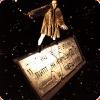 Queen Elizabeth is Julian Cope and Thighpaulsandra's ongoing "sonic ritual" project. Birthed in 1993, the first album was released in 1994 and the second double album, newly reissued, in 1997. Well over three hours of improvised music is spread over the three discs, the "shortest" of the seven tracks being thirteen minutes. As one might expect from these two space cadets, languid analog ambience (or "Ambulence" as Cope refers to it) via Mellotrons, Moogs and ARPs is the primary mode of space-time travel here, though percussion, guitars and miscellany also play a part.
Queen Elizabeth is Julian Cope and Thighpaulsandra's ongoing "sonic ritual" project. Birthed in 1993, the first album was released in 1994 and the second double album, newly reissued, in 1997. Well over three hours of improvised music is spread over the three discs, the "shortest" of the seven tracks being thirteen minutes. As one might expect from these two space cadets, languid analog ambience (or "Ambulence" as Cope refers to it) via Mellotrons, Moogs and ARPs is the primary mode of space-time travel here, though percussion, guitars and miscellany also play a part.
On the debut, brash quasi-arpeggios make up the bulk of "Superstar" while intentionally distorted piano chords interrupt the knob twiddling drift in "Avebury: The Arranged Marriage of Heaven and Earth".
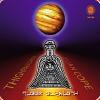 On 'Elizabeth Vagina', "Tal-y-Fan" is a shocker kicking off with bombastic rock drums and bass guitar groove, later settling into extensive modulations. And the tail end of "Temples of Ker" breaks into a charming piano and guitar led ditty, nearly negating the 11 minutes of chugging synths preceding it. It surprises me that with this much meat, there's not that much to really sink my teeth into. That is, instead of being engrossed, I more often than not find myself impatiently waiting for something better to happen. I love ambient minded music but I feel that most of this material is lacking in magick and is, well, rather self-indulgent. And everything here pales in comparison to Thighpaulsandra's later work with Coil and on his own. He took the Queen Elizabeth concept to the next level for his brilliant solo debut 'I, Thighpaulsandra' by fashioning ingenious songs amongst the meandering moments. Even Cope cops to this by admitting in the sleeve notes, in reference to a track on 'I' originally intended for a third Queen Elizabeth release, that it "vastly transcends the breadth of musical vision originally destined for the Queen Elizabeth version".
On 'Elizabeth Vagina', "Tal-y-Fan" is a shocker kicking off with bombastic rock drums and bass guitar groove, later settling into extensive modulations. And the tail end of "Temples of Ker" breaks into a charming piano and guitar led ditty, nearly negating the 11 minutes of chugging synths preceding it. It surprises me that with this much meat, there's not that much to really sink my teeth into. That is, instead of being engrossed, I more often than not find myself impatiently waiting for something better to happen. I love ambient minded music but I feel that most of this material is lacking in magick and is, well, rather self-indulgent. And everything here pales in comparison to Thighpaulsandra's later work with Coil and on his own. He took the Queen Elizabeth concept to the next level for his brilliant solo debut 'I, Thighpaulsandra' by fashioning ingenious songs amongst the meandering moments. Even Cope cops to this by admitting in the sleeve notes, in reference to a track on 'I' originally intended for a third Queen Elizabeth release, that it "vastly transcends the breadth of musical vision originally destined for the Queen Elizabeth version".
 
samples:
 
Read More
- Administrator
- Albums and Singles
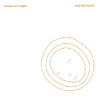 H.S. Ziegler began flooding the German underground scene withself-released home-produced cassettes in the 1980s. Particularlyannoying naive and dada-esque, he used every style and toy instrumenthe could get hold of to develope his ways of expression. Throughout the1990s, he released a wide variety of stuff in nearly any possibleformat on a wide selection of independent labels, teamed up with Blummfor more than 3 CDs and making regular guest appearances on Mouse OnMars releases, starting with 'Iaora Tahiti'.
H.S. Ziegler began flooding the German underground scene withself-released home-produced cassettes in the 1980s. Particularlyannoying naive and dada-esque, he used every style and toy instrumenthe could get hold of to develope his ways of expression. Throughout the1990s, he released a wide variety of stuff in nearly any possibleformat on a wide selection of independent labels, teamed up with Blummfor more than 3 CDs and making regular guest appearances on Mouse OnMars releases, starting with 'Iaora Tahiti'.'Kopf Zahl Bauch' (Head Number Belly) is finally his all-star album,featuring guest collaborators Mouse On Mars on "Toy Tech Two", alongwith Marcus Schmickler, FX Randomiz, Reuber, Blumm, Guido M?bius, andRon Martin (more or less the whole A-Musik crowd with Joseph Suchyco-producing). This is by no means a wild electronica avant-gardecelebrity album, but a collection of alternative pop tunes withcharming harmonies and melodies and the occasional vocal tunes aboutlost loves, daily observations, and vacations in New York. "Urlauber InNew York," for example, from the 'Staubgold 20' compilation, is used asthis album's opener. These songs can get quite emotional but never tothe point of sheer annoyance.
Ballads like "Einsam" (Lonely) or "Zwei Wochen Zwei" (Two Weeks Two,again with Joseph Suchy) or just songs like "Schenken" (Give a Gift,with Reuber) get better with each listening. The only track which is abit too drowsy for me is "Lila Regen" (Pink Rain), but otherwise, thisis a very cute and friendly album.
samples:
Read More
- Administrator
- Albums and Singles
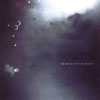 Randall Nieman cut his teeth in the Michigan space-rock scene playingwith Windy & Carl (then a quartet). Moving on to start a newproject, F?xa, with former Asha Vida member Ryan Anderson, Nieman wasable to fully explore the electronic counterpart to his interests, inaddition to guitar and bass work. Although Anderson his since departed,Nieman has continued with rather prolific output ('Supercharged' marksthe sixth full-length release). The array of instrumentation on thisalbum is all in dreamy hints and touches. The theremin, Moog and synthsnever overpower the guitar, bass and drums, or vice versa. Less trippythan previous efforts like 'Very Well Organized' and less airy than '3Field Rotation', 'Supercharged' draws from both styles, but infusesthem with darker, milder overtones. The first of the eight tracks,"Hide Away" is a prime example. Smoky and magnetic, this song featuresassistance from The Telescopes'/Unisex's Jo Doran and Stephan Lawrie,who lend their low, sparse vocals (something new to F?xa's mostlyinstrumental repetoire), which are submerged into the waftingelectronics. Then, later moving on in a different direction, the thirdtrack "420" is distorted and noisy. 'Supercharged' has a lot ofvariety, but still manages to retain a sense of balance, and is verypolished and even. "It Was You" is another outstanding track,highlighting Nieman's skill for handling analog electronics as well asthat of drummer Drew Peters (another figure in the burgeoning Michiganscene). The result is simple and charming. Unfortunately, thecharismatic beginning of the album just doesn't follow through to theend: "The Formula", "We Could Be Together" and "In Your Dreams" arepretty and quaint, but become difficult to distinguish after the albumreaches its midpoint and lack the character of the songs which preceedthem. That said, I still wouldn't hesitate to recommend 'Supercharged'to fans of F?xa's previous work or anyone who has an appreciation forthoughtful, introspective instrumental music, such as The Album Leaf(on whom F?xa are clearly an influence). Plus, the sublime artwork byMartin Andersen (ex-v23) is an excellent bonus.
Randall Nieman cut his teeth in the Michigan space-rock scene playingwith Windy & Carl (then a quartet). Moving on to start a newproject, F?xa, with former Asha Vida member Ryan Anderson, Nieman wasable to fully explore the electronic counterpart to his interests, inaddition to guitar and bass work. Although Anderson his since departed,Nieman has continued with rather prolific output ('Supercharged' marksthe sixth full-length release). The array of instrumentation on thisalbum is all in dreamy hints and touches. The theremin, Moog and synthsnever overpower the guitar, bass and drums, or vice versa. Less trippythan previous efforts like 'Very Well Organized' and less airy than '3Field Rotation', 'Supercharged' draws from both styles, but infusesthem with darker, milder overtones. The first of the eight tracks,"Hide Away" is a prime example. Smoky and magnetic, this song featuresassistance from The Telescopes'/Unisex's Jo Doran and Stephan Lawrie,who lend their low, sparse vocals (something new to F?xa's mostlyinstrumental repetoire), which are submerged into the waftingelectronics. Then, later moving on in a different direction, the thirdtrack "420" is distorted and noisy. 'Supercharged' has a lot ofvariety, but still manages to retain a sense of balance, and is verypolished and even. "It Was You" is another outstanding track,highlighting Nieman's skill for handling analog electronics as well asthat of drummer Drew Peters (another figure in the burgeoning Michiganscene). The result is simple and charming. Unfortunately, thecharismatic beginning of the album just doesn't follow through to theend: "The Formula", "We Could Be Together" and "In Your Dreams" arepretty and quaint, but become difficult to distinguish after the albumreaches its midpoint and lack the character of the songs which preceedthem. That said, I still wouldn't hesitate to recommend 'Supercharged'to fans of F?xa's previous work or anyone who has an appreciation forthoughtful, introspective instrumental music, such as The Album Leaf(on whom F?xa are clearly an influence). Plus, the sublime artwork byMartin Andersen (ex-v23) is an excellent bonus.
samples:
Read More
- Administrator
- Albums and Singles
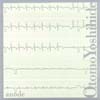 Anyone who mourned the passing of Otomo Yoshihide's incendiaryplunderphonic rock improv explosion Ground Zero should give 'Anode' ablast now! The opening and closing highly percussive attacks arecomparable to the middle section of Ground Zero's 'Last Concert'recording, where the duelling drums let fly, however these are morechaotic and loose, multi-layered and free. Perhaps this is no surpriseconsidering Ground Zero demolition drummers Uemura Masahiro andYoshigaki Yasuhiro are once more punishing the skins. 'Anode' wasimprovised under the conditions that the twelve musicicans do notrespond to each other, do not plot an obvious course and do not playregular rhythms or melodies. The ten and sixteen minute variations of"Anode 1" are as raucous and cacophanous as you might expect, but arealso more uplifting and joyful than anything I've heard all year. Sixpercussionists skitter and tumble thunderously foot over head as sinewaves wail, an empty turntable buzzes and electric guitar feedbacksings dissonant voids. Sandwiched between are two calm and reflectiverealisations of the 'Anode' game, which nod to John Cage's aleatorycomposition. "Anode 2" is the calm after the storm, as slow randomtrickles bounce off each other in curious lines. It segues neatly into"Anode 3" on which Nishi Yoko's prepared 17-string koto looms into theforeground pursuing a more climactic feel. Familiar names from theJapanorama tour such as guitarist Sugimoto Taku, sine waver Sachiko Mand percussionist Furuta Mari are on board, and in Liverpool a fourplayer version of "Anode 1" was the highlight. Otomo Yoshihide hasreleased a mind boggling number of CDs, usually of very high qualityand originality but some more essential than others. Alongside theI.S.O. CDs, this is the most assured and fascinating he's sounded sincethe demise of Ground Zero in 1998. Half of it's Otomo and friends attheir noisiest, and few kick up such a glorious racket.
Anyone who mourned the passing of Otomo Yoshihide's incendiaryplunderphonic rock improv explosion Ground Zero should give 'Anode' ablast now! The opening and closing highly percussive attacks arecomparable to the middle section of Ground Zero's 'Last Concert'recording, where the duelling drums let fly, however these are morechaotic and loose, multi-layered and free. Perhaps this is no surpriseconsidering Ground Zero demolition drummers Uemura Masahiro andYoshigaki Yasuhiro are once more punishing the skins. 'Anode' wasimprovised under the conditions that the twelve musicicans do notrespond to each other, do not plot an obvious course and do not playregular rhythms or melodies. The ten and sixteen minute variations of"Anode 1" are as raucous and cacophanous as you might expect, but arealso more uplifting and joyful than anything I've heard all year. Sixpercussionists skitter and tumble thunderously foot over head as sinewaves wail, an empty turntable buzzes and electric guitar feedbacksings dissonant voids. Sandwiched between are two calm and reflectiverealisations of the 'Anode' game, which nod to John Cage's aleatorycomposition. "Anode 2" is the calm after the storm, as slow randomtrickles bounce off each other in curious lines. It segues neatly into"Anode 3" on which Nishi Yoko's prepared 17-string koto looms into theforeground pursuing a more climactic feel. Familiar names from theJapanorama tour such as guitarist Sugimoto Taku, sine waver Sachiko Mand percussionist Furuta Mari are on board, and in Liverpool a fourplayer version of "Anode 1" was the highlight. Otomo Yoshihide hasreleased a mind boggling number of CDs, usually of very high qualityand originality but some more essential than others. Alongside theI.S.O. CDs, this is the most assured and fascinating he's sounded sincethe demise of Ground Zero in 1998. Half of it's Otomo and friends attheir noisiest, and few kick up such a glorious racket.
samples:
Read More

